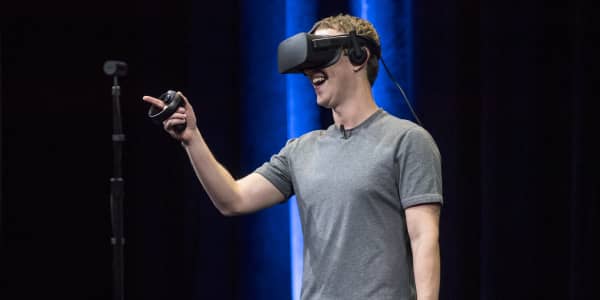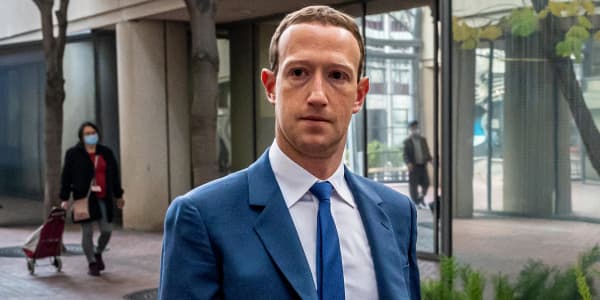Election 2016 is over, but the hard feelings — at least on social media — may linger well beyond the closing of the polls.
In the runup to Tuesday's hard fought presidential contest, social media users on Twitter and Facebook found themselves regularly embroiled in heated political arguments. For many, the only way out was through the practice of unfollowing, blocking or outright "unfriending" those with whom they disagreed — even family members.
A recent Monmouth University poll found that 7 percent of voters lost or ended a friendship because of the battle that pitted Republican President-elect Donald Trump against former Secretary of State Hillary Clinton. The report noted that figure was in line with recent election cycles, despite the vitriolic contest that saw two of the most unpopular candidates in recent history vie for the White House.
Perhaps nowhere was the phenomenon of broken relationships more visible than on Facebook, a microcosm of real-life. A Facebook spokesperson told CNBC that the social network doesn't track the number of accounts that choose to sever contact with others, but said the election generated 10 billion posts, likes, comments and shares among nearly 300 million users across the world.
I need my brother to explain why he let his political views dissolve our connection. I don't need an apology. Just help me understand why a brother blocked a brother.Greg Cope Whiteauthor
Those same posts led to the testing of a lot of friendships and familial bonds — some of which ultimately snapped under the weight of an unusually long and bitter election season. Emily Potts, a Clinton supporter and a publicist for the Heron Agency in Chicago, insisted the online vitriol she encountered in 2016 was a different animal from any other year.
"In 2012, I was able to gladly have a discussion with those who supported [GOP nominee] Mitt Romney, and often was able to sympathize with their point of view," she told CNBC. "This election could not have been more different."
Jimmy Millard, a Donald Trump supporter from Kennesaw, Georgia, said the 2016 election made Facebook an especially unpleasant place to be. He said that he was unfollowed, unfriended or blocked by friends whom he had known for more than 35 years.
Unfortunately, a member of his extended family was also one of the casualties.
"To this day he will not attend family events if he knows that I will be there, and when he does have the opportunity to respond to something I post on Facebook, it is always a bad conversation with him calling me names or dismissing my opinion as false without doing any research," he told CNBC. "I've been voting longer than he has been alive."
U.S. Marine Corps veteran Greg Cope White, author of the book "The Pink Marine" and a Clinton supporter, was actually blocked on Facebook by his own brother, a Trump supporter.
Both men are gay, but their political differences proved a bridge too far — at least for White's brother, who blocked him.
"I need my brother to explain why he let his political views dissolve our connection," he said. "I don't need an apology. Just help me understand why a brother blocked a brother."
White said that while he didn't get the outcome he had hoped for from the election, he has accepted it. "Trump won, and it's my duty to respect him in office," he said.
Tonja Bales, a part-time hostess, also voted for Clinton. She estimated that she had lost "at least 50 people" on Facebook — and she did the majority of the pruning herself.
"I asked my social media contacts to unfriend me if they planned on voting for a white nationalist, went through and deleted the ones that I knew were supporting him," the Cincinnati resident told CNBC, "then I just continued to pick them off as I found them."
Not all the social media furor was limited to the general election. Bales, who supporter Vermont Sen. Bernie Sanders during the primaries, said she recalled numerous dust-ups with Clinton primary supporters who could be at least as fiery as a Trump supporter.
"It was unreal that so many of these people were so venomous," Bales said, adding that she wasn't concerned with repairing any of the lost relationships. "It was a stunning blow and made me understand the cries of 'liberal elitism' from the right."
With Trump's election now giving way to heated protests nationwide, some think it might be worthwhile for social media sparring partners to do less posting and more listening.
"I think social media unleashes inner monsters in everyone, on both sides of the aisle," Potts said. "People say things they would never have the guts to say to someone's face. I think if I were to sit down with someone and really hear their story, I might be more understanding."





